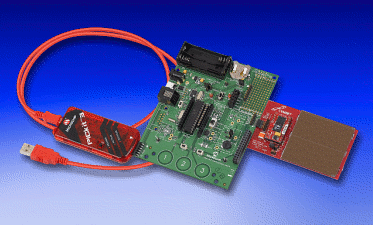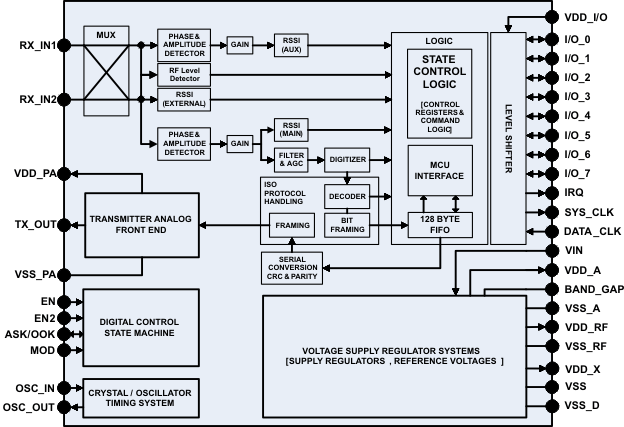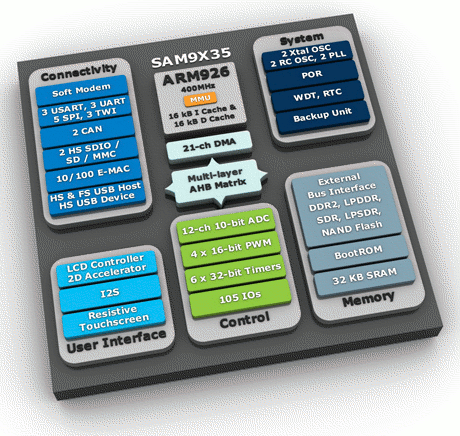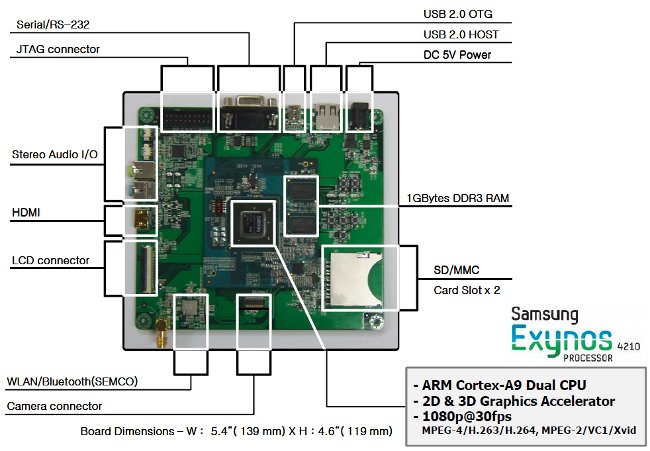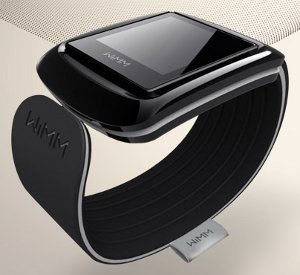The fourth presentation entitled “Embedded Systems” was presented by Tim Harder, developer at OSUOSL (Oregon State University Open Source Lab) on the 16th of August 2011 at LinuxCon 2011. Abstract: This presentation deals with software development for Embedded Systems especially focusing on Linux and open source. It describes current software development challenges such as fast software life cycle and memory footprint issues, lists several open hardware projects (Beagleboard, Pandaboard, Bug Labs, Gumstix), microcontrollers (Arduino and TI MSP430), different operating systems (Android, Meego) and toolchain build tools (Buildroot, Yocto) for embedded systems. It also explains specific challenges to embedded software development such a the numerous number of hardware platforms and software & hardware tools. Finally, it deals with the cross-compilers, emulators (e.g. qemu) and debugging tools (gdb, jtag, serial console, etc…). If you want to download the presentation slides, please go to Embedded Systems and use the download button on top of […]
Preview of Google TV Add-on for the Android SDK
Google announced that Android Market is coming to Google TV at Google I/O with a preview of the Google TV Add-on for the Android SDK. Google TV devices will be Android compatible with the upcoming OS update to Honeycomb. That means developers can build new Android apps for TV, optimize existing mobile or tablet apps for TV and/or distribute those apps through Android Market. Although this add-on does not contain all features of Google TV, it will allow developers to emulate Google TV and build apps using the standard Android SDK tools. It also provides new APIs for TV interaction, such as TV channel listing. Google TV emulation is currently supported on Linux with KVM (Kernel-based Virtual Machine) only, but Google will provide support for other operating systems later on. An existing Android app may work well on Google TV or it may require fixes depending on the design and […]
Energy Harvesting Development Kit by Microchip Technology
The XLP 16-bit Energy Harvesting Development Kit is a development platform for realizing energy harvesting applications powered by Microchip nanoWatt XLP PIC MCUs which are suited for low power applications with sleep currents down to 20nA, active mode currents down to 50uA/MHz, code execution efficiency, and multiple wake-up sources. The power for the kit is supplied by Cymbet’s EVAL-08 Solar Energy Harvester which features a solar panel suitable for use with indoor or outdoor light. The XLP kit enables rapid prototyping of low power applications such as RF sensors, temperature/environmental sensors, utility meters, remote controls, security sensors and more. For software development and programming, the kit includes the PICkit 3 programmer/debugger for use with the Microchip’s free MPLAB™ Integrated Development Environment. Microchip also provides XLP 16-bit Energy Harvesting RF Demo Code in C language (The file is a Windows Executable, but it’s just an executable compressed file so it can […]
Texas Instruments TRF7970A NFC Transceiver
Texas Instruments has introduced the TRF7970A NFC Transceiver ” speeds designs with easy-to-configure software that helps developers bring peer-to-peer, ultra-low-power capabilities to more applications”. Here’s an excerpt from the press release: Raising the standard for ultra-low-power near field communication (NFC) devices, Texas Instruments Incorporated (TI) (NYSE: TXN) today announced the industry’s lowest power contactless short-range communication transceiver. Ideal for infrastructure devices, the new TRF7970A extends battery life up to 2 times longer than competitive products, as it provides eight selectable power modes ranging from <1 uA in power-down mode to 120 mA in full-power mode. The transceiver comes with easy-to-configure software to help developers get started quickly. Royalty-free stacks are compatible across a broad range of ultra-low-power MSP microcontrollers. Additionally, developers are able to directly access all control registers, allowing for easy fine-tuning of various parameters for the highest performance in every application. You can also read the complete TRF7970A […]
HTC Releases OpenSense SDK
HTC recently released OpenSense SDK, a framework encompassing all available HTC SDKs as well as features that will be offered in the future for HTC Sense user interface. Supported features include: Common Controls API: UI widgets and components that will provide developers with the ability to provide the Sense UI look and feel to their applications. Stereoscopic 3D (S3D) API: API documentation and sample code that illustrates how to programmatically enable the 3D display mode of the parallel barrier based screen for various types of applications. This API is provided as part of the phone add-on extension to the Android SDK. Tablet Pen API: API documentation and sample code for providing a framework for fully fledged drawing and painting applications as well as full access to the pen events at a low level. This API is provided as part of the tablet add-on extension to the Android SDK. API documentation […]
5 New Atmel SAM9 Processors: SAM9G15, SAM9G25, SAM9G35, SAM9X25, and SAM9X35
Atmel recently announced five new embedded processors for its SAM9 family all running at 400MHz, featuring 100mW consumption, support for DDR2 and NAND flash memory, with some models offering LCD touchscreen support and CAN interfaces: SAM9G15 based on ARM926EJ Embedded Microprocessor Unit with LCD, Touchscreen, HS USB and LPDDR/DDR2/MLC NAND support. SAM9G25 based on ARM926EJ Embedded Microprocessor Unit with Ethernet, HS USB and LPDDR/DDR2/MLC NAND support. SAM9G35 based on ARM926EJ Embedded Microprocessor Unit with LCD, Touchscreen, Ethernet, HS USB and LPDDR/DDR2/MLC NAND support. SAM9X25 based on ARM926EJ Embedded Microprocessor Unit with Dual Ethernet, Dual CAN, HS USB and LPDDR/DDR2/MLC NAND support. SAM9X35 based on ARM926EJ Embedded Microprocessor Unit with LCD, Touchscreen, Ethernet, Dual CAN, HS USB and LPDDR/DDR2/MLC NAND support. The 3 new SAM9G processors are basically a lower cost version of the SAM9G45 with less cache, no video decoding support, etc… The 2 SAM9X processors are similar but feature […]
Low Cost Development Board Samsung Origen based on Exynos 4210
Late May, Samsung and Linaro announced Samsung Origen, a low cost development board (199 USD) based on Samsung Exynos 4210, that will use Linaro software and related development tools. This development board is mainly targeted for the development of products such as tablets, smartbooks, IVI, smartphone and other consumer products. Here are the technical details of the board: Cortex-A9 1.0 GHz Dual Core & NEON with leading GHz ARM Technology Samsung Exynos 4210 Advanced Low Power 45nm Application Processor Lower-BOM cost access to Exynos4210 processor with 1GB DDR3 RAM Multimedia Core with H/W Multi Format Codec provides 1080p@30fps HDMI, LCD / Touch screen support, WLAN/Bluetooth and camera. Extreme 3D Graphics Performance accelerated by Mali400 MP4. Wider Memory Bandwidth for Smartphone and Tablet Scenario. Richer Peripherals & High Speed Interface for system: 8ch I2C, HDMI, SATA, PCI Express, USB 2.0 HOST/OTG, 2x SD/MMC Card Slot Debugging Interfaces: JTAG, Serial/RS-232 port Dimensions: […]
Wearable Android Development Kit
WIMM Labs recently announced a wearable Android-based reference platform and software development kit designed for mobile, sports, health, fashion, finance and consumer electronics applications. The WIMM One platform feature a 1.4″ Bi-modal display, a capacitive touch screen, Wi-Fi, Bluetooth, an accelerometer, a magnetometer, audible and tactile alerts, up to 32GB memory. It is water-resistant, its dimensions are 32×36×12.5mm and it only weights 22g. Wimm Labs also said the device supports GPS in their twitter account. The platform is not currently available, but will be in Q3 2011. The price would be between 200 USD and 2000 USD depending on the licensee according to Wimm Twitter account, with the Wimm One Developer Preview platform closer to the lower end which still makes it a relatively pricey platform. Wimm Labs will also launch a store for applications and accessories later this Fall, where people will be able to find, purchase, and install […]




